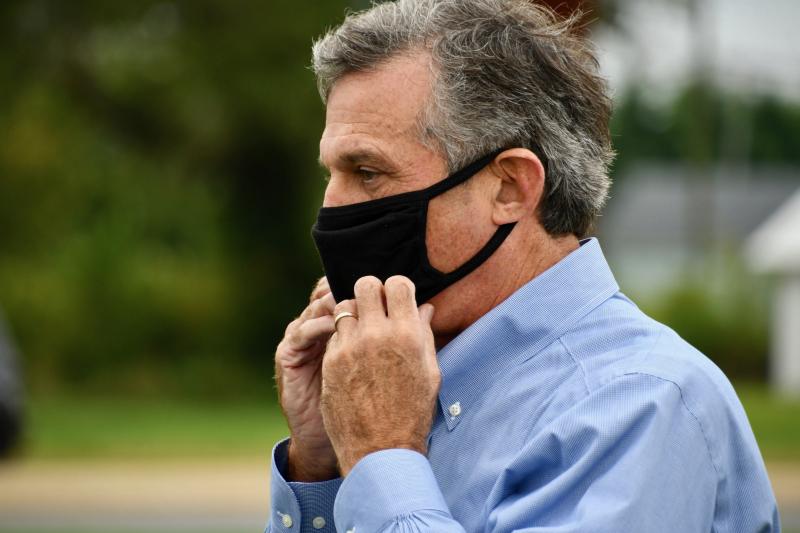With COVID-19 cases continuing to rise, Delaware hospitals remain poised to handle an influx of patients, said Gov. John Carney.
“That certainly is one of the biggest concerns, and has been from the beginning, to protect the capacity in our hospitals to effectively treat patients who are COVID-19 positive,” he said Dec. 1 during his weekly address.
Carney said he had met a day earlier with hospital officials, when they told him they felt confident of their ability to manage the latest surge. New treatments for COVID-19 already have decreased the length of time for hospital stays, he said, and the acuity of the disease appears to be less serious.
At Beebe, officials recently said they have treated patients over the past several months with Remdesivir, an antiviral drug that has reduced the length of hospital stays. Beebe officials also said they plan to use Regeneron, an antibody cocktail, when it becomes available.
At the peak in April, the number of hospitalized patients in Delaware topped 337. At the time, hospitals across the state were looking into ways to add more patient beds. Nemours A.I. duPont Hospital for Children added 38 beds for overflow patients to a gymnasium that was never used, and the Delaware National Guard was ready to erect hospital tents, which also were not used.
By August, COVID hospitalizations dropped to a low of 26 before shooting up to the latest high of 277 on Dec. 2.
Carney said the state still has an agreement with Nemours if extra beds are needed.
“It would take about a month's time to stand up,” he said. “We're pretty [good] right now with 246. Our capacity is somewhere in the 400 to 500 range, depending on the activity in the hospitals.”
If nonemergency hospitalizations are curtailed, he said, that could add even more beds if needed.
Although making sure there are enough hospital beds is still a concern, officials are now focused on providing enough medical staff to care for sick patients.
An emergency order issued in the spring was created to boost the number of health professionals in Delaware, and the order continues today, Carney said. Under the order, the Delaware Emergency Management Agency and Division of Public Health are allowing healthcare professionals licensed in other states, those who have retired in the past five years, and recent graduates and some health professional students to work in Delaware hospitals under appropriate supervision.
“[It's] very important tot he hospitals and their ability to keep those critical care rooms operating,” Carney said.
Vaccine rollout
Dr. Rick Hong, DPH medical director, gave a rundown on when Delawareans can expect a COVID-19 vaccine to reach the state, and who will be the first ones to receive the shots.
Pfizer and Moderna vaccines have had effectiveness over 95 percent, he said, but possible side effects include injection site pain, fatigue, and muscle aches.
“The majority of [people] who did go through the trials initially had no side effects,” he said.
Hong said he expects the initial vaccine supply will be rolled out by mid to late December, with availability to the general population by spring. “This is a phased rollout,” he said.
The first group anticipated to receive vaccines includes high-risk workers in health or patient care settings who are routinely exposed to infected people or materials. This includes first responders and emergency medical technicians.
A second group includes essential and critical infrastructure workers, people with comorbidities or underlying chronic conditions, people in high-risk congregate settings, and those who are 65 or older.
Hong added that these categories are still under discussion and final decisions will be determined by the federal government.
“Given the limited supply initially, we anticipate the first round will be focused on high-risk workers in health and patient care settings,” he said.
Melissa Steele is a staff writer covering the state Legislature, government and police. Her newspaper career spans more than 30 years and includes working for the Delaware State News, Burlington County Times, The News Journal, Dover Post and Milford Beacon before coming to the Cape Gazette in 2012. Her work has received numerous awards, most notably a Pulitzer Prize-adjudicated investigative piece, and a runner-up for the MDDC James S. Keat Freedom of Information Award.





















































